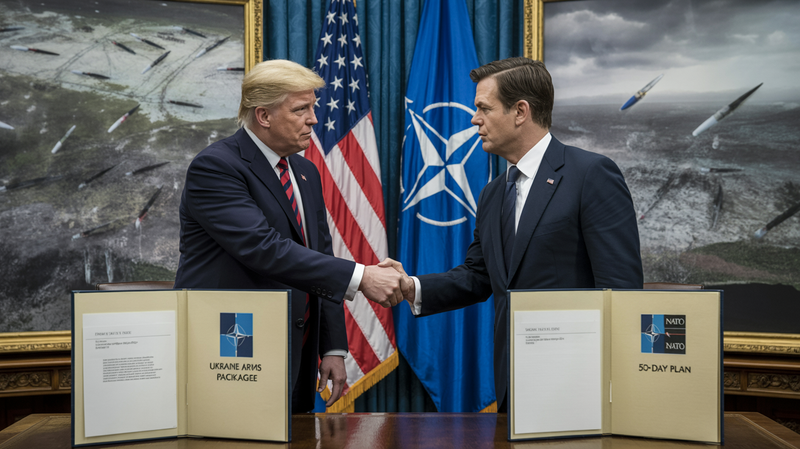U.S. Views Corruption as Ukraine's True Adversary
A confidential U.S. strategy document, recently acquired by POLITICO, reveals heightened concerns within the Biden administration over Ukraine's entrenched corruption. This internal perspective is noticeably more pronounced than the public narrative, highlighting how critical the anti-corruption campaign is for maintaining Western support, especially during Ukraine's

A confidential U.S. strategy document, recently acquired by POLITICO, reveals heightened concerns within the Biden administration over Ukraine's entrenched corruption. This internal perspective is noticeably more pronounced than the public narrative, highlighting how critical the anti-corruption campaign is for maintaining Western support, especially during Ukraine's ongoing conflict with Russia.
The leaked "Integrated Country Strategy" for Ukraine offers an in-depth analysis, spanning over thrice the length of its public counterpart, detailing Washington's myriad objectives in the region. This ranges from urging Ukraine to privatize its banks, bolstering English education, and aligning its military closer to NATO standards. A significant emphasis is placed on curbing the endemic corruption that has long plagued the nation.
U.S. officials, including President Joe Biden, have been historically wary of corruption in Ukraine. Still, these concerns took a backseat following Russia's comprehensive invasion in February 2022. This was a strategic choice, as the U.S. aimed to present a united front with Ukraine against what President Biden termed as the fight between democracy and autocracy.
However, more than a year into this large-scale war, corruption is resurfacing in official dialogues. For instance, the U.S. National security adviser Jake Sullivan recently engaged with representatives from Ukrainian anti-corruption bodies. There's also speculation around conditioning future economic support based on Ukraine's active strides against corruption.
President Volodymyr Zelenskyy's recent actions, including the dismissal of several high-ranking defense officials over corruption allegations, signals his recognition of these international concerns.
Key objectives outlined in the confidential strategy include:
Military Reform and Assistance: Besides helping Ukraine defend against Russian aggression, the U.S. aims for Ukraine to imbibe NATO principles. Goals encompass reforming elements of Ukraine’s national security to foster a decentralized approach to task execution, thus minimizing corruption avenues.
Economic Decentralization: A strong push for "deoligarchization" is evident, especially within energy and mining sectors. The U.S. envisions a Ukraine where energy sector control is decentralized, and financial systems bolster business expansion, with reduced state involvement in banking.
Cultural and Educational Ties: Bolstering English education in Ukraine emerges as a priority. This is not merely an academic endeavor; it's perceived as a bridge to reintegrate Ukrainians liberated from Russian control.
Judicial and Oversight Reforms: The U.S. is keen on Ukraine enhancing its internal oversight capacities, from local government corruption assessments to reforms in administrative roles. This includes aiding Ukraine's Accounting Chamber in refining its audit capabilities, ensuring transparent utilization of U.S. financial aid.
Expanding U.S. Diplomatic Reach: Post the Russian invasion, the U.S. seeks to rebuild and extend its diplomatic presence in Ukraine, beyond just Kyiv, encompassing cities like Lviv, Odesa, Kharkiv, and Dnipro.
The overarching sentiment is clear: the U.S. seeks a corruption-free Ukraine, not just as a beneficiary of aid but as a strategic partner in the region. As Ukraine battles external adversaries, its internal fight against graft becomes equally vital in defining its global relationships and internal stability.




